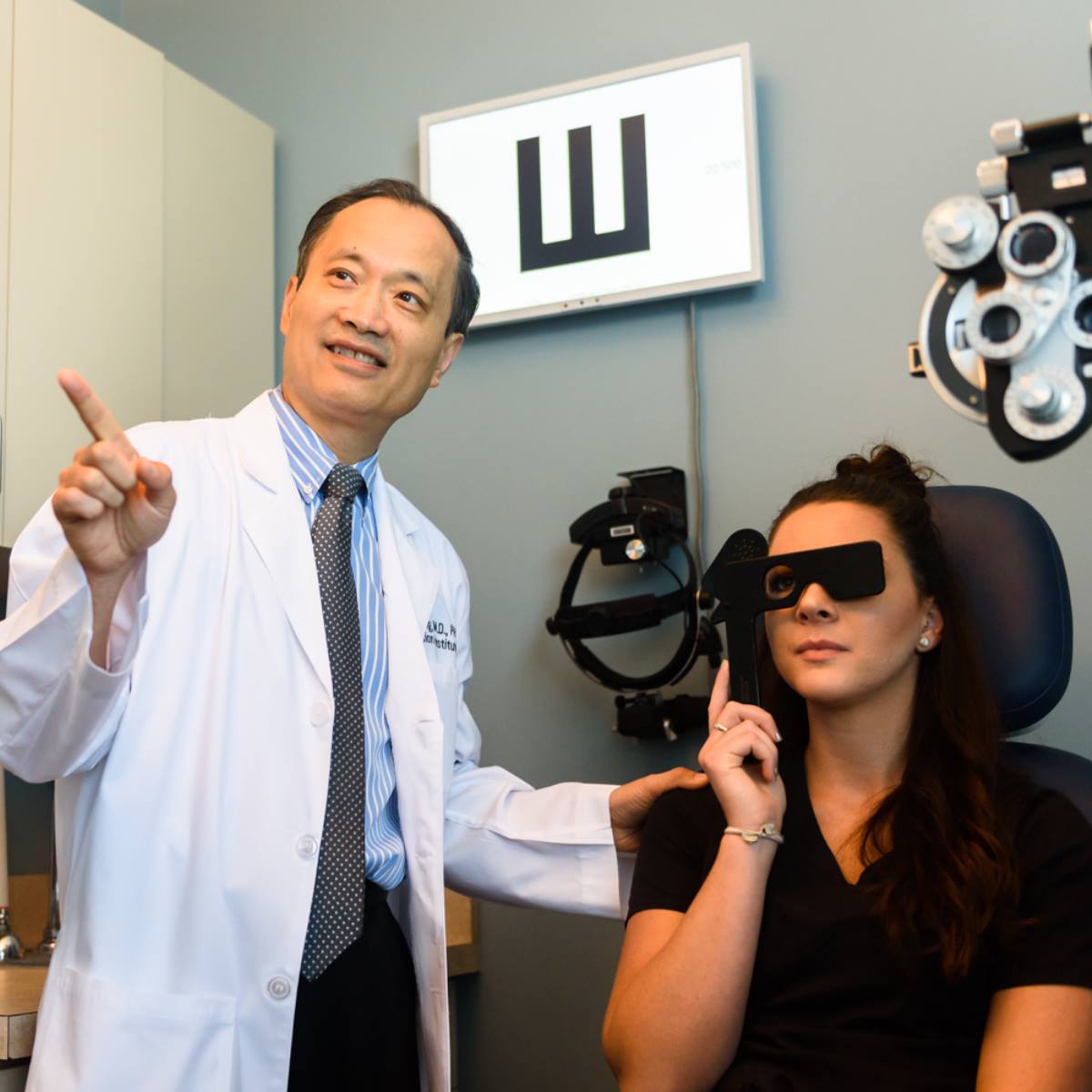GENERAL EYE CARE
Choosing an eye care provider is an important health care decision. After all, you will be trusting your eye doctor to safeguard your precious sense of sight and help you maintain a lifetime of good vision.
The first step in your decision is to understand that there are two types of eye doctors: optometrists and ophthalmologists. And there is a third "O" among eye care providers: the optician.
WHAT IS AN OPTOMETRIST?
An optometrist is an eye doctor who has earned the Doctor of Optometry (OD) degree.
Optometrists examine eyes for both vision and health problems, and correct refractive errors by prescribing eyeglasses and contact lenses. Some optometrists also provide low vision care and vision therapy.
Optometrists in the United States also are licensed to prescribe medications to treat certain eye problems and diseases. The scope of medical care that can be provided by optometrists is determined by state law. (For details about the scope of practice of optometrists where you live, visit the website of your state's board of optometry.)
Both optometrists and ophthalmologists examine eyes and prescribe eyeglasses and contact lenses.
Optometrists also may participate in your pre- and post-operative care if you have eye surgery performed by an ophthalmologist. With a few exceptions, optometrists in the U.S. are not trained or licensed to perform eye surgery.
An optometrist generally must complete a four-year college degree program in the sciences, plus four years of post-graduate professional training in optometry school. In this regard, the educational requirements of an optometrist are similar to those of a dentist.
Like ophthalmologists, optometrists are required to fulfill continuing education requirements on an ongoing basis to maintain their licensure and stay current with the latest standards of eye care.
WHAT IS AN OPHTHALMOLOGIST?
An ophthalmologist is a medical doctor (MD) or a doctor of osteopathic medicine (DO) who specializes in eye and vision care. Ophthalmologists are trained to perform eye exams, diagnose and treat disease, prescribe medications and perform eye surgery. They also write prescriptions for eyeglasses and contact lenses.
Ophthalmologists generally complete four years of college, four years of medical school, one year of internship, and a minimum of three years of hospital-based residency in ophthalmology.
So (to extend the analogy with dentistry), whereas the education of an optometrist is similar to that of a general dentist, the education and training of an ophthalmologist are more similar to that of an oral surgeon.
WHAT IS AN OPTICIAN?
An optician is not an eye doctor, but opticians are an important part of your eye care team. Opticians use prescriptions written by an optometrist or an ophthalmologist to fit and sell eyeglasses and other eyewear.
In some states, opticians must complete an opticianry training program and be licensed. Other states don't require opticians to obtain formal training or licensure. Some states allow opticians to fit contact lenses, usually after completing a certification program.
WHICH EYE DOCTOR SHOULD I SEE: AN OPTOMETRIST OR AN OPHTHALMOLOGIST?
If your eyes are healthy and don't require specialized medical or surgical treatment, the type of eye doctor you choose for a routine eye exam is a matter of personal preference.
Optometrists and ophthalmologists both perform routine eye exams and both types of eye doctors are trained to detect, diagnose and manage eye diseases that require medical and non-medical treatment.
If you already have a medical eye problem — such as glaucoma, macular degeneration or cataracts — it is important to seek care from an eye doctor who is highly trained and skilled in monitoring and treating your condition. In many cases, this may mean that medical or surgical eye care by a specially trained ophthalmologist is in order. In such cases, your optometrist (or general ophthalmologist) may refer you to a colleague who is a specialist in treating your condition.
Most optometrists offer medical treatment for common eye problems (such as dry eyes and eye infections) and certain chronic eye diseases (such as glaucoma). But certain eye disorders require treatment by an ophthalmologist, particularly if surgery or other specialty care is needed.
Ophthalmologists are medical eye doctors who are licensed to perform eye surgery. In many cases, care for a specific eye problem may be provided by an optometrist and an ophthalmologist working as a team. This arrangement is called co-management.
In co-management, your primary care eye doctor (usually an optometrist) refers you to a specialist (usually an ophthalmologist) for a definitive diagnosis and treatment plan. The ophthalmologist may choose to manage the problem medically, perform eye surgery, or both. After the condition is controlled or surgically treated, the specialist then sends you back to your primary care eye doctor, who continues to monitor and treat your condition or perform post-operative care based on the specialist's recommendations.
Co-management is a particularly good solution if you are very pleased with the quality of eye care you are receiving from your primary care eye doctor, but you want to have any specific medical eye conditions treated by an experienced specialist.
FACTORS WHEN CHOOSING AN EYE DOCTOR
When inquiring about the services an eye doctor provides, ask what happens if a problem is detected that requires treatment beyond the doctor's scope of care. Which medical and surgical specialists do they refer to, and where are they located?
A doctor's professional affiliations and memberships can help to indicate expertise in certain areas of practice; for example, ophthalmologists may belong to the American Society of Retinal Specialists or the American Society of Cataract and Refractive Surgeons. Some organizations have rigorous standards for membership or Fellowship, such as the American Academy of Optometry .
Finally, a major factor you should consider when choosing an eye doctor is the recommendation of that doctor by friends, family members or coworkers. Word-of-mouth referrals often are the best way to find a friendly, competent and caring eye doctor and avoid unpleasant surprises when you go to have your eyes examined.














